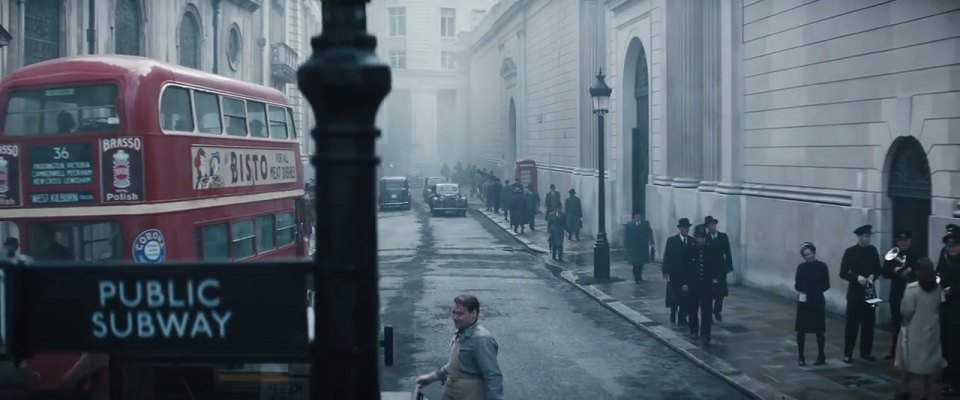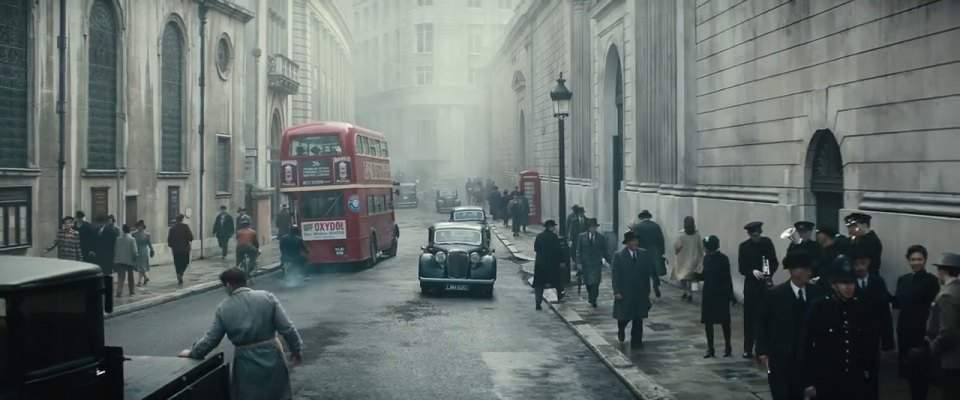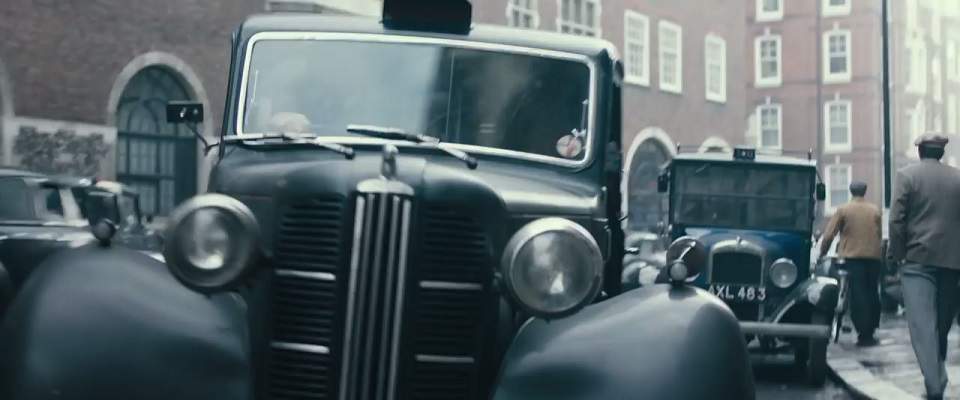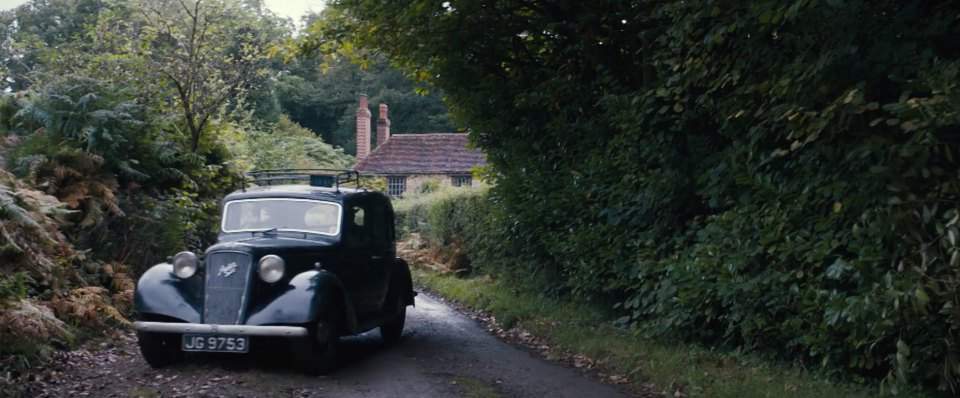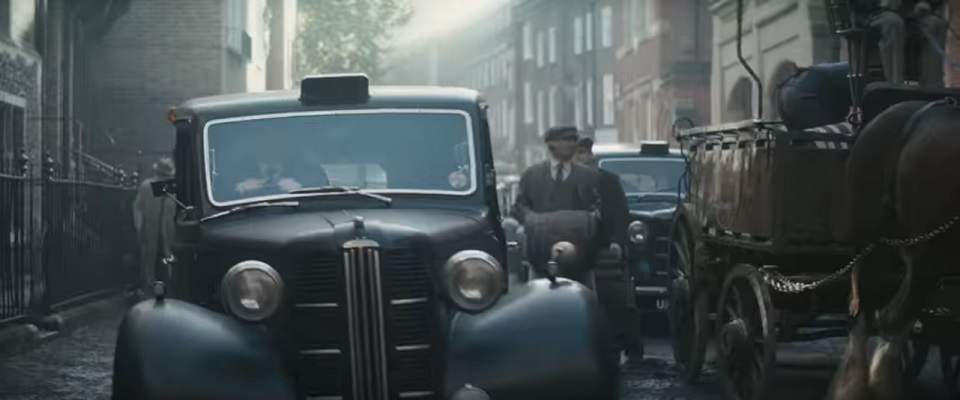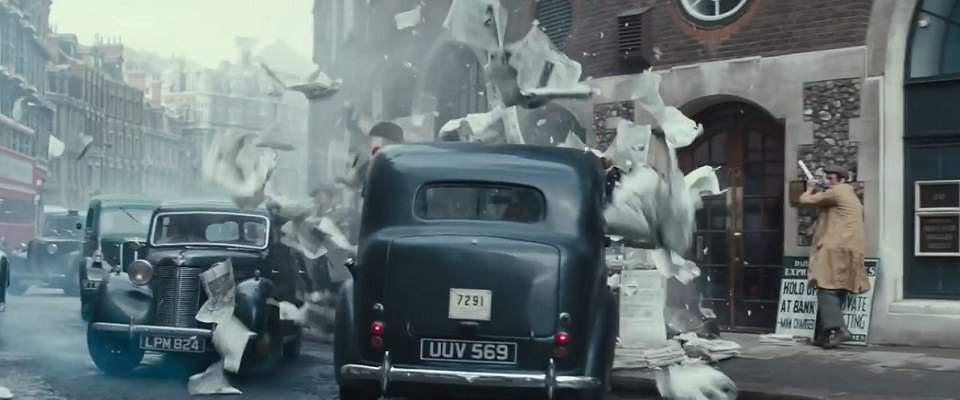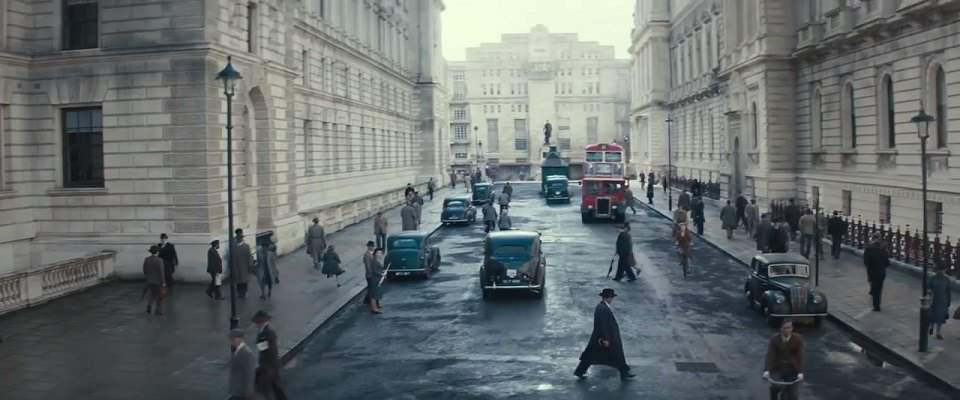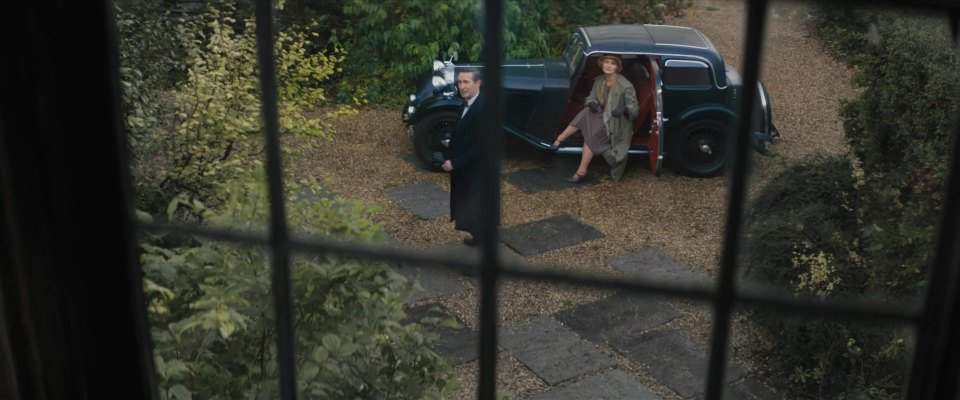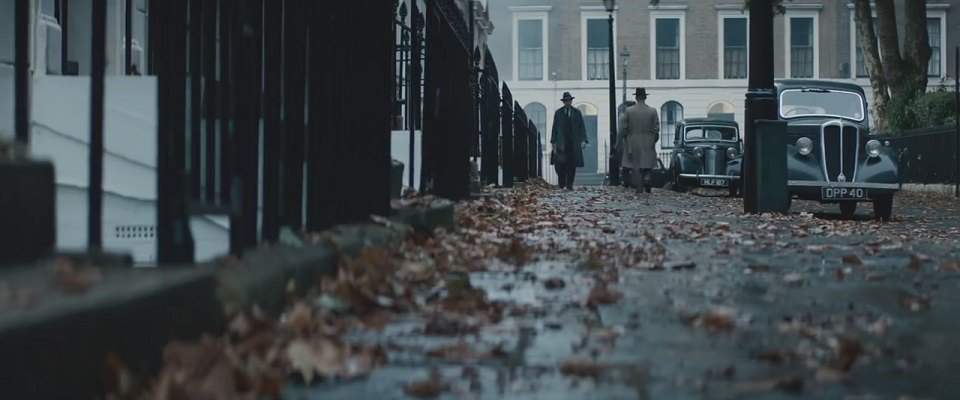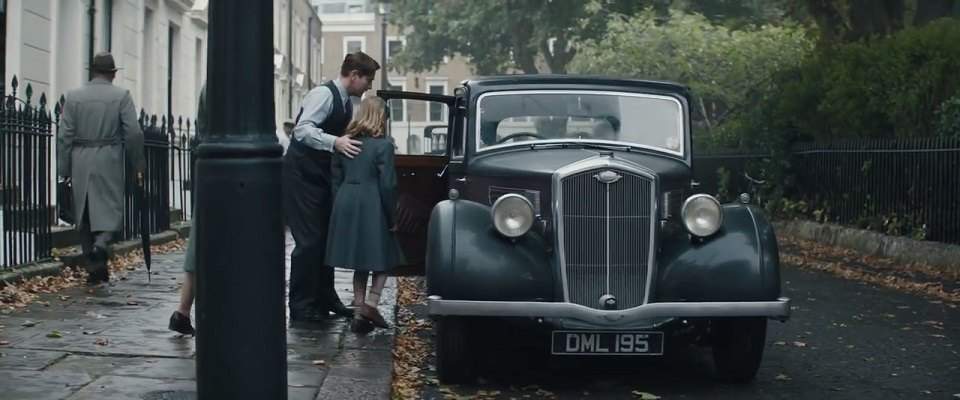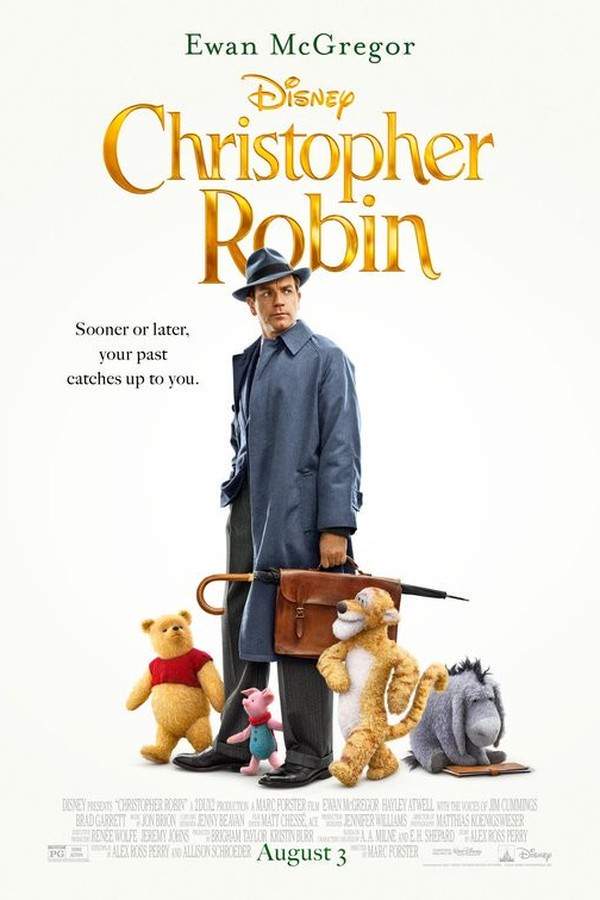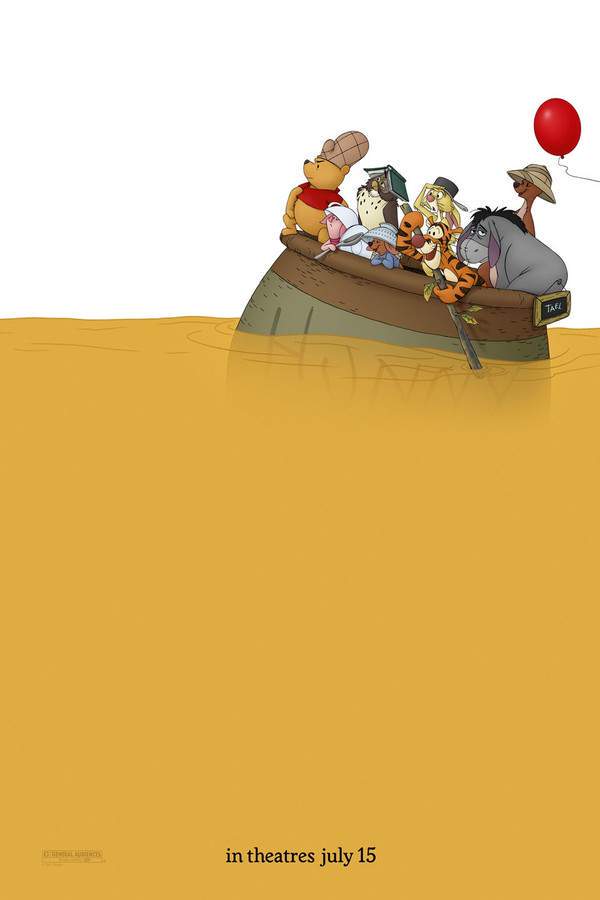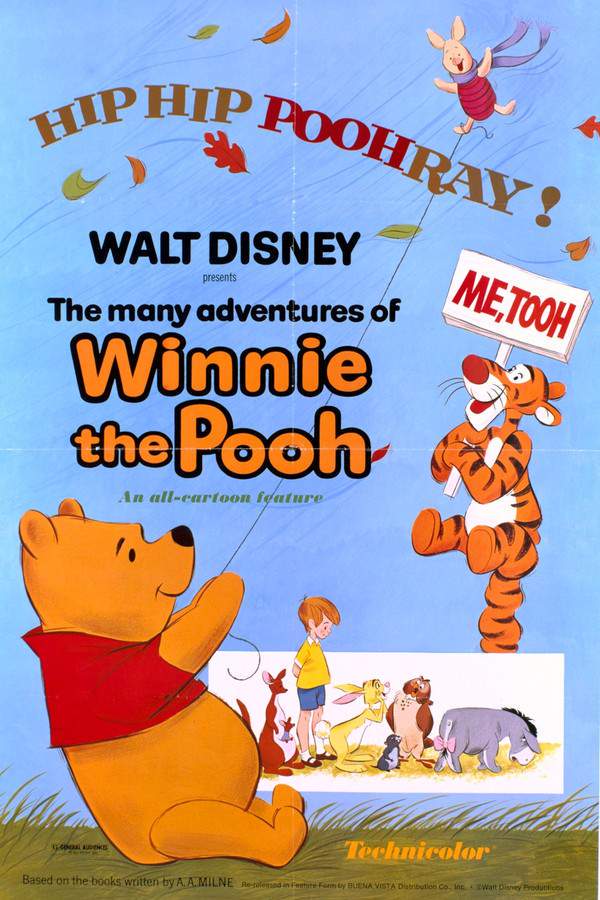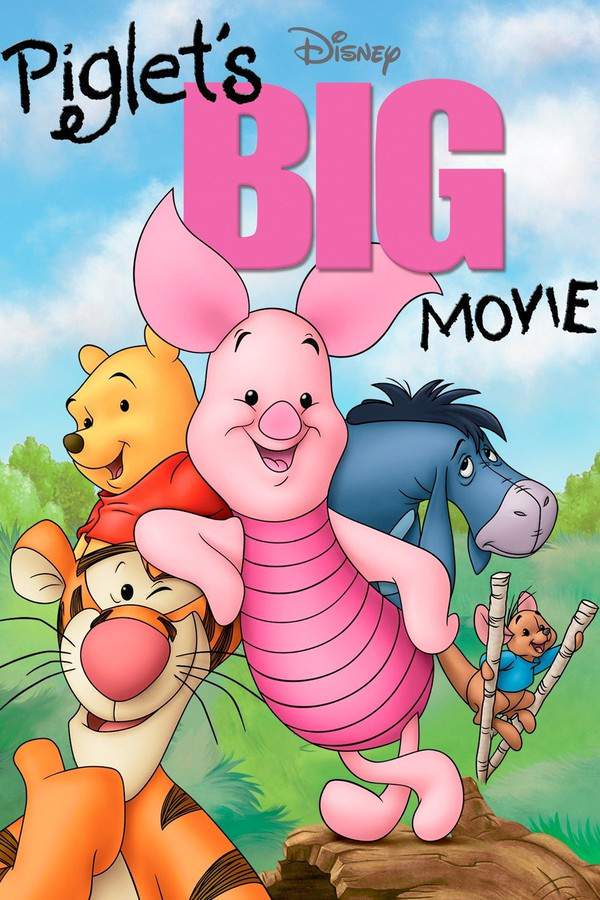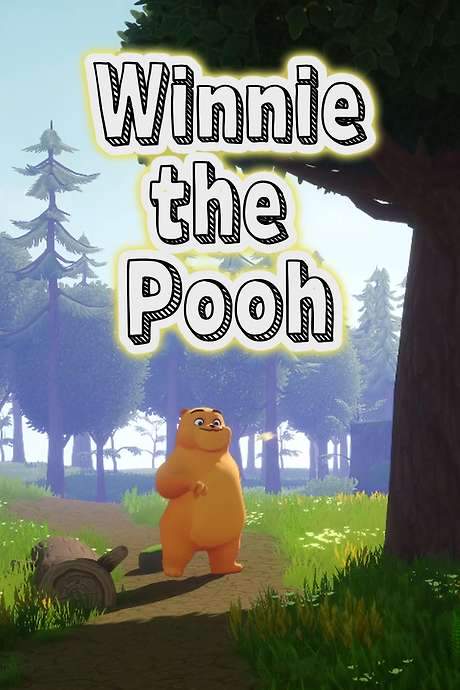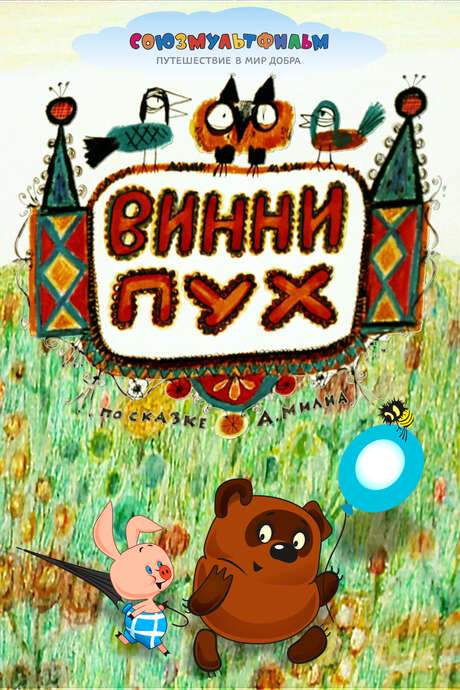Goodbye Christopher Robin 2017
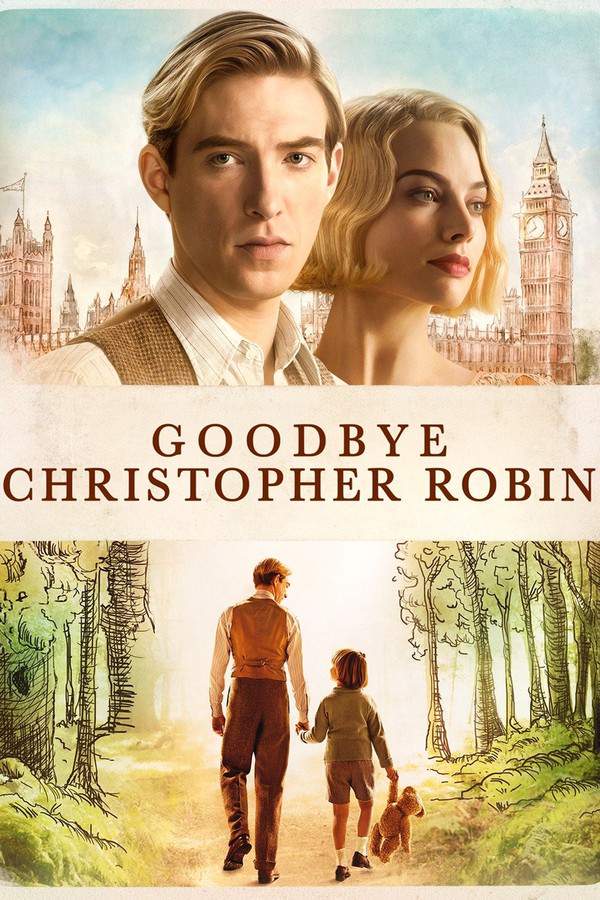
As Winnie the Pooh captures the hearts of audiences worldwide, a young boy’s childhood is tested by the pressures of sudden fame. This poignant film portrays A.A. Milne's son, Christopher Robin, and his family as they grapple with the impact of international success. Balancing the enchanting world of toys and imagination with the challenges of maintaining a normal life proves difficult as the family confronts the complexities of their newfound celebrity.
Does Goodbye Christopher Robin have end credit scenes?
No!
Goodbye Christopher Robin does not have end credit scenes. You can leave when the credits roll.
Meet the Full Cast and Actors of Goodbye Christopher Robin
Explore the complete cast of Goodbye Christopher Robin, including both lead and supporting actors. Learn who plays each character, discover their past roles and achievements, and find out what makes this ensemble cast stand out in the world of film and television.

Margot Robbie
Daphne Milne

Kelly Macdonald
Olive

Domhnall Gleeson
Alan Milne

Nico Mirallegro

Phoebe Waller-Bridge
Mary Brown

Simon Williams

Alex Lawther
Christopher Robin Aged 18

Stephen Campbell Moore
Ernest

Honey Holmes

Vicki Pepperdine
Betty

Richard McCabe
Rupert

Geraldine Somerville
Lady O

Mossie Smith
Sharon the Midwife

Shaun Dingwall
Alfred

Stanley Hamlin
Christopher Robin Aged 6 Months

Will Tilston
Christopher Robin Aged 8
External Links and Streaming Options
Discover where to watch Goodbye Christopher Robin online, including streaming platforms, rental options, and official sources. Compare reviews, ratings, and in-depth movie information across sites like IMDb, TMDb, Wikipedia or Rotten Tomatoes.
Ratings and Reviews for Goodbye Christopher Robin
See how Goodbye Christopher Robin is rated across major platforms like IMDb, Metacritic, and TMDb. Compare audience scores and critic reviews to understand where Goodbye Christopher Robin stands among top-rated movies in its genre.

The Movie Echo Score
The film offers a generally positive experience anchored by strong visuals and performances, though its narrative pacing and depth are somewhat uneven. Many viewers praised the period production design, cinematography, and evocative score for capturing the film’s warm yet dramatic atmosphere. The acting and emotional bond between father and son were noted as effective, but several critiques targeted the rapid story progression and inconsistent tonal shifts. Despite these narrative shortcomings, the film’s craft and emotional highlights yield a compelling biographical drama overall.
The Movie Echo Score Breakdown for Goodbye Christopher Robin

Art & Craft
In terms of art and craft, the film excels with its detailed period production and measured cinematography. The evocative color palette and careful costume design draw consistent praise, and critics commend the cohesive visual style. While the editing maintains clarity amid temporal shifts, some observers note a tendency toward safe, conventional framing. Overall, the visual execution is a standout element.

Character & Emotion
When it comes to character and emotion, performances receive broad approval for their nuanced warmth. Reviewers highlight the chemistry between the father and son pair and commend key leads for conveying emotional resonance. Some critiques cite a lack of deeper character exploration due to the expedited script, yet the core relationships retain sufficient depth. Overall, the acting leaves a positive impression.

Story & Flow
In terms of story and flow, the film offers engaging insights into its subject’s life yet grapples with uneven pacing. Observers praise the emotional arc but note that key plot points unfold too swiftly, leaving some narrative threads underdeveloped. A handful of reviews cite abrupt tonal shifts that hinder coherence. Overall, the storyline remains moving but imperfectly balanced.

Sensory Experience
When considering the sensory experience, the score and sound design receive consistent commendation for enhancing the film’s emotional tone. Reviewers note the period-appropriate music and ambient details that complement the visual storytelling, creating an immersive atmosphere. Some commentary suggests the audio mix favors melody over dynamic variation, though this does not significantly detract. Overall, the sensory elements reinforce the film’s affective goals.

Rewatch Factor
In terms of rewatch value, the film offers moments of warmth and craftsmanship that viewers may revisit with appreciation. The strong visuals and central performances provide enough appeal for a second viewing, though the brisk narrative pacing and occasional tonal unevenness may limit repeated engagement. Overall, the movie invites revisit for its aesthetic qualities more than its story.

Metascore
tbd
User Score


64%
TOMATOMETER

71%
User Score

7.1 /10
IMDb Rating

70
%
User Score

3.4
From 77 fan ratings

3.86/5
From 36 fan ratings
Take the Ultimate Goodbye Christopher Robin Movie Quiz
Challenge your knowledge of Goodbye Christopher Robin with this fun and interactive movie quiz. Test yourself on key plot points, iconic characters, hidden details, and memorable moments to see how well you really know the film.
Exploring Goodbye Christopher Robin: Test your knowledge on the poignant story of A.A. Milne and his son Christopher Robin in 'Goodbye Christopher Robin'.
What nickname did Alan Alexander Milne go by?
Blue
Al
Milne
A.A
Show hint
Full Plot Summary and Ending Explained for Goodbye Christopher Robin
Read the complete plot summary of Goodbye Christopher Robin, including all major events, twists, and the full ending explained in detail. Explore key characters, themes, hidden meanings, and everything you need to understand the story from beginning to end.
In 1941, against the backdrop of World War II, Alan Alexander Milne—affectionately dubbed “Blue” by those close to him—and his wife Daphne receive a harrowing telegram that dramatically alters their lives. But before we explore this tumultuous moment, let’s rewind to 1916, during World War I, when Blue fought valiantly at the Battle of the Somme, forever imprinting the horrors of war onto his psyche.
Upon his return from the frontlines, Blue found it challenging to match his traumatic experiences with the demands of civilian life. His relationship with Daphne blossomed as they welcomed their son, Christopher Robin Milne, lovingly known as “Billy Moon” by his parents. Although the birth of their child brought immense joy, it also left Daphne feeling unsettled and disconnected, as she had yearned for a daughter and struggled to grasp the realities of motherhood.
Seeking solace through writing, Blue endeavored to craft a powerful treatise against war that had long been festering within him. To ignite his inspiration, the family moved to a tranquil countryside home, enveloped by lush woodlands and teeming with wildlife. However, this change became a double-edged sword for Daphne, who felt isolated from her friends and familiar life in the city.
While Daphne was away in London, Blue indulged in his imagination, spinning whimsical tales about Billy’s adventures with his beloved plush toys. These imaginative narratives would eventually evolve into the cherished Winnie-the-Pooh books, a collection that would capture the hearts of children and adults alike. Additionally, their dear friend Ernest, an illustrator, joined them to breathe life into these enchanting stories.
The return of Daphne marked a significant turning point for the family; her poem “Vespers,” featured in Vanity Fair, brought much-needed recognition and attention to Blue’s literary pursuits. Following this success, the Winnie-the-Pooh books skyrocketed, thrusting the Milne family into the spotlight and changing their lives forever. Faced with this new celebrity status, young Billy struggled to reconcile the fame with his own identity, often feeling overshadowed by the character his father had created.
As complexities arose, revelations about Olive’s romantic interests created tension within the family. Billy confided in his parents, leading to a confrontation between Daphne and Olive that climaxed in a bitter argument. The emotional turmoil prompted Olive to resign and express her grievances toward Blue and Daphne, accusing them of exploiting Billy’s imagination. In a resolute response, Blue decided to abandon storytelling, severing the creative link he had shared with Billy.
This decision bore swift and profound consequences. Blue halted Billy’s public appearances and enrolled him in a prestigious boarding school. However, these new circumstances subjected Billy to harsh realities, including bullying, which fueled a growing animosity toward his father. When World War II escalated, Billy initially faced rejection from military enlistment due to health issues, yet he pleaded with his influential father to utilize his connections to secure his acceptance, despite Blue’s deep-seated apprehensions about the war.
Ultimately, Billy embarked on active service, willingly disavowing his father’s literary legacy and the financial prosperity it had afforded them. As an emotional farewell, Blue received a cricket ball from their solitary match, a poignant reminder of their once-close bond. In a desperate attempt to stay his son’s departure, Blue tried to intervene at the last moment but was thwarted by Billy’s determination.
The harrowing impact of war left its mark, and the family’s worries deepened when a telegram reported Billy as missing in action, presumed dead. The news devastated Olive, while Blue and Daphne grappled with their grief. In an agonizing moment, Blue delivered the tragic news to Olive, unknowingly straining relations between her and Daphne further.
However, an unexpected twist emerged when Billy returned unannounced to the family estate, leading to awkward yet deeply touching reunions. As he reconciled with Blue, Billy shared a profound realization born from his wartime experiences: a comrade had serenaded their group with a melody from Winnie-the-Pooh, a reminder of the literary legacy that reverberated even in the face of adversity. This moment of shared insight strengthened the bond between father and son, as they navigated their experiences together.
As the narrative gracefully concludes, Blue and Billy stroll through the enchanting woods, with Billy’s journey encapsulated by reflections on his childhood and the transformations he underwent through the trials of his formative years.
Uncover the Details: Timeline, Characters, Themes, and Beyond!

Coming soon on iOS and Android
The Plot Explained Mobile App
From blockbusters to hidden gems — dive into movie stories anytime, anywhere. Save your favorites, discover plots faster, and never miss a twist again.
Sign up to be the first to know when we launch. Your email stays private — always.
Watch Trailers, Clips & Behind-the-Scenes for Goodbye Christopher Robin
Watch official trailers, exclusive clips, cast interviews, and behind-the-scenes footage from Goodbye Christopher Robin. Dive deeper into the making of the film, its standout moments, and key production insights.
Cars Featured in Goodbye Christopher Robin
Explore all cars featured in Goodbye Christopher Robin, including their makes, models, scenes they appear in, and their significance to the plot. A must-read for car enthusiasts and movie buffs alike.
Goodbye Christopher Robin Themes and Keywords
Discover the central themes, ideas, and keywords that define the movie’s story, tone, and message. Analyze the film’s deeper meanings, genre influences, and recurring concepts.
Goodbye Christopher Robin Other Names and Titles
Explore the various alternative titles, translations, and other names used for Goodbye Christopher Robin across different regions and languages. Understand how the film is marketed and recognized worldwide.
Similar Movies To Goodbye Christopher Robin You Should Know About
Browse a curated list of movies similar in genre, tone, characters, or story structure. Discover new titles like the one you're watching, perfect for fans of related plots, vibes, or cinematic styles.
Quick Links: Summary, Cast, Ratings, More

What's After the Movie?
Not sure whether to stay after the credits? Find out!
Explore Our Movie Platform
New Movie Releases (2025)
Famous Movie Actors
Top Film Production Studios
Movie Plot Summaries & Endings
Major Movie Awards & Winners
Best Concert Films & Music Documentaries
Movie Collections and Curated Lists
© 2025 What's After the Movie. All rights reserved.















